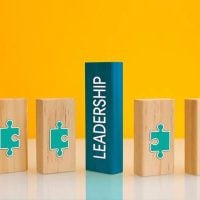The World Bank Group (WBG) is a vital institution that plays a significant role in global development. Its mission is to reduce poverty and promote shared prosperity by providing financial and technical assistance to developing countries. The WBG operates on the principle that economic growth must be inclusive and sustainable, ensuring that the benefits of development reach all segments of society.
This mission is underpinned by a commitment to fostering partnerships, promoting innovation, and ensuring accountability in its operations. Understanding these core values is essential for anyone aspiring to work within the organization, as they guide decision-making processes and shape the culture of the institution. Moreover, the WBG emphasizes the importance of collaboration and inclusivity in its approach to development.
It recognizes that sustainable solutions require input from diverse stakeholders, including governments, civil society, and the private sector. This collaborative spirit is reflected in its projects, which often involve multi-stakeholder partnerships aimed at addressing complex global challenges such as climate change, health crises, and economic inequality. For prospective employees, aligning personal values with those of the WBG can enhance their chances of success in securing a position and thriving within the organization.
Identifying Entry-Level Opportunities at the World Bank Group
Entry-Level Opportunities at the World Bank Group
The World Bank’s Young Professionals Program (YPP) is particularly noteworthy, as it recruits talented individuals from diverse backgrounds to work on critical development issues. In addition to formal programs, aspiring candidates should actively monitor job postings on the WBG’s careers website and engage with professional networks related to international development.
Informal Strategies for Career Advancement
Attending conferences, workshops, and seminars can also provide insights into available opportunities and help build connections with current employees. This approach enables individuals to stay informed about the latest developments in the field and demonstrate their interest in the organization.
The Importance of Networking
Networking is an essential strategy for discovering unadvertised positions or gaining referrals, which can significantly enhance one’s chances of securing an interview. By establishing relationships with professionals in the field, individuals can gain valuable advice and stay ahead of the competition in the job market.
Securing a Successful Career Launch
Building the Necessary Skills and Qualifications
To stand out in a competitive job market, candidates must develop a robust skill set that aligns with the needs of the World Bank Group. Strong analytical skills are paramount, as employees are often tasked with evaluating complex data sets to inform policy decisions and project designs. Proficiency in quantitative methods, statistical analysis, and economic modeling can be particularly advantageous.
Additionally, familiarity with qualitative research techniques is essential for understanding community needs and stakeholder perspectives. Beyond technical skills, soft skills such as communication, teamwork, and cultural sensitivity are equally important. The WBG operates in diverse environments where collaboration with individuals from various backgrounds is commonplace.
Therefore, candidates should seek opportunities to enhance their interpersonal skills through group projects, volunteer work, or leadership roles in community organizations. Furthermore, language proficiency can be a significant asset; fluency in languages such as French, Spanish, or Arabic can open doors to positions in regions where these languages are spoken.
Crafting a Strong Application and Resume
When applying for positions at the World Bank Group, crafting a compelling application and resume is crucial for making a positive impression. Candidates should tailor their resumes to highlight relevant experiences that demonstrate their alignment with the WBG’s mission and values. This includes showcasing internships, volunteer work, or academic projects that reflect a commitment to international development and social impact.
Quantifying achievements—such as the number of beneficiaries served or funds raised—can also enhance credibility and illustrate effectiveness. In addition to a well-structured resume, a strong cover letter is essential for conveying passion and motivation. Candidates should articulate why they are interested in working for the WBG specifically and how their skills can contribute to its goals.
Personal anecdotes or experiences that resonate with the organization’s mission can make an application more memorable. Furthermore, attention to detail is critical; applicants should ensure that their materials are free from errors and formatted professionally.
Navigating the Interview Process
Successfully navigating the interview process at the World Bank Group requires thorough preparation and an understanding of what interviewers are looking for. Candidates should familiarize themselves with common interview questions related to their experiences, motivations for joining the WBG, and knowledge of current global development issues. Behavioral interview questions are particularly prevalent; candidates should prepare examples that demonstrate their problem-solving abilities, teamwork experiences, and adaptability in challenging situations.
Additionally, candidates should be prepared to discuss specific projects or initiatives undertaken by the WBG that resonate with them personally. This not only shows genuine interest but also allows candidates to demonstrate their knowledge of the organization’s work. Practicing mock interviews with peers or mentors can help build confidence and refine responses.
Finally, candidates should remember that interviews are a two-way street; asking insightful questions about the organization’s culture or future projects can leave a positive impression on interviewers.
Making the Most of Your Career at the World Bank Group
Introduction to Career Development at the World Bank Group
Once individuals secure a position at the World Bank Group, it is essential to take proactive steps to maximize their career potential within the organization. Engaging in continuous learning is vital; employees should seek out professional development opportunities such as workshops, training sessions, or online courses that align with their career goals. The WBG often encourages employees to pursue further education or certifications relevant to their roles, which can enhance expertise and open doors for advancement.
Networking and Collaboration
Networking within the organization is equally important for career growth. Building relationships with colleagues across different departments can lead to collaborative projects and mentorship opportunities. Participating in internal committees or working groups can also provide exposure to various aspects of the organization’s operations while demonstrating initiative and leadership potential.
Seeking Feedback and Setting Career Objectives
Additionally, employees should regularly seek feedback from supervisors and peers to identify areas for improvement and set clear career objectives that align with their aspirations within the WBG. This process helps individuals stay focused on their career trajectory and make informed decisions about their professional development.
Conclusion and Key Takeaways
In conclusion, embarking on a career at the World Bank Group requires a deep understanding of its mission and values, strategic identification of entry-level opportunities, skill development, effective application crafting, interview preparation, and proactive career management. By following these actionable tips and learning from real-world examples within the organization, aspiring professionals can enhance their chances of success and make meaningful contributions to global development efforts.









































